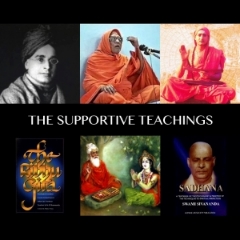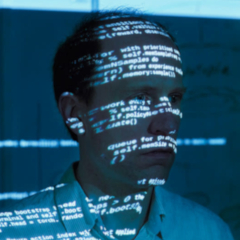MATHEMATICS & CONSCIOUSNESS | TEGMARK
| | homeTHE MATHEMATICS OF MEASURING CONSCIOUSNESS | IIT
HUFFPOST SCIENCE BLOG | MAX TEGMARK | 01.14.2016
|| LETS MEASURE CONSCIOUSNESS ! ||
Integrated Information Theory ( IIT ) of consciousness says that information being processed is conscious if a Mathematical quantity called Φ ( Phi ) is large . Phi quantifies integration , the extent to which information is interconnected into a unified whole rather than split into disconnected parts .
The theory has generated interest from the neuroscience community , but also controversy , including recent critique from Scott Aaronson .
I want to see the question of whether IIT is correct or not resolved by experimental tests .
Unfortunately , Tononi's proposed measure of integration is too slow to compute in practice from state-of-the-art patient data , requiring longer than the age of our universe , let alone the lifetime of the patient .
I have therefore worked hard over the last year in search of a faster way to compute integration , and I am happy report that I have found one — in fact , several .
In a paper I just posted , I explore and classify existing and novel integration measures by various desirable properties , finding that although there at first seem to be a few hundred options , there are in fact only a handful if attractive ones .
I was happy to discover that there is an approximation based on graph theory that lets you dramatically speed up the exact formulas , so that they can be applied to real-world data from laboratory experiments without posing unreasonable computational demands .
Let us try to shed more light on the fascinating questions and theories about consciousness my making experimental tests !
ARXIV.ORG | MAX TEGMARK | 01.13.2016
|| IMPROVED MEASURES OF INTEGRATED INFORMATION ||
Although there is growing interest in measuring integrated information in computational and cognitive systems , current methods for doing so in practice are computationally unfeasible .
Existing and novel integration measures are investigated and classified by various desirable properties .
A simple taxonomy of Φ ( Phi ) measures is presented where they are each characterized by their choice of factorization method ( 5 options ) , choiceof probability distributions to compare ( 3 x 4 options ) and choice of measure for comparing probability distributions ( 5 options ) .
When requiring the Φ ( Phi ) measures to satisfy a minimum of attractive properties , these hundreds of options reduce to a mere handful , some of which turn out to be identical .
Useful exact and approximate formulas are derived that can be applied to real-world data from laboratory experiments without posing unreasonable computational demands .
DAILY BEAST | SEARCHING | ERIK P HOEL | 02.28.2016
|| HOW TO MATHEMATICALLY MEASURE CONSCIOUSNESS ||
A month ago I was being introduced for the public presentation of my neuroscience PhD defense . My mentor , Giulio Tononi , noted that it is remarkable now that there are places , including Tononi's own lab , where a young scientist can now pursue a career studying consciousness .
After all , for nearly a century , scientific work on consciousness was considered too strange , too weird , too philosophical , to be " real science " . It used to be that to study consciousness as a scientist you needed the level of immunity afforded not only by tenure , but also a Nobel Prize .
Indeed the contemporary field was inaugurated in 1990 by Francis Crick ( Nobel-Prize-winning co-discoverer of DNA ) and Christof Koch . Together , they published the paper " Toward a Neurobiological Theory of Consciousness " , which argued that the time was ripe to scientifically investigate consciousness .
In a genius move of diplomacy , they redirected the goal of the investigation to be merely a description of the neural correlates of consciousness ( or NCC ) . Leave aside philosophical positions , they advocated , and concentrated on finding what neural events correlate to consciousness .
After 25 years it is finally verging on mainstream .
SOURCE | SATYAVEDISM.ORG



































































































